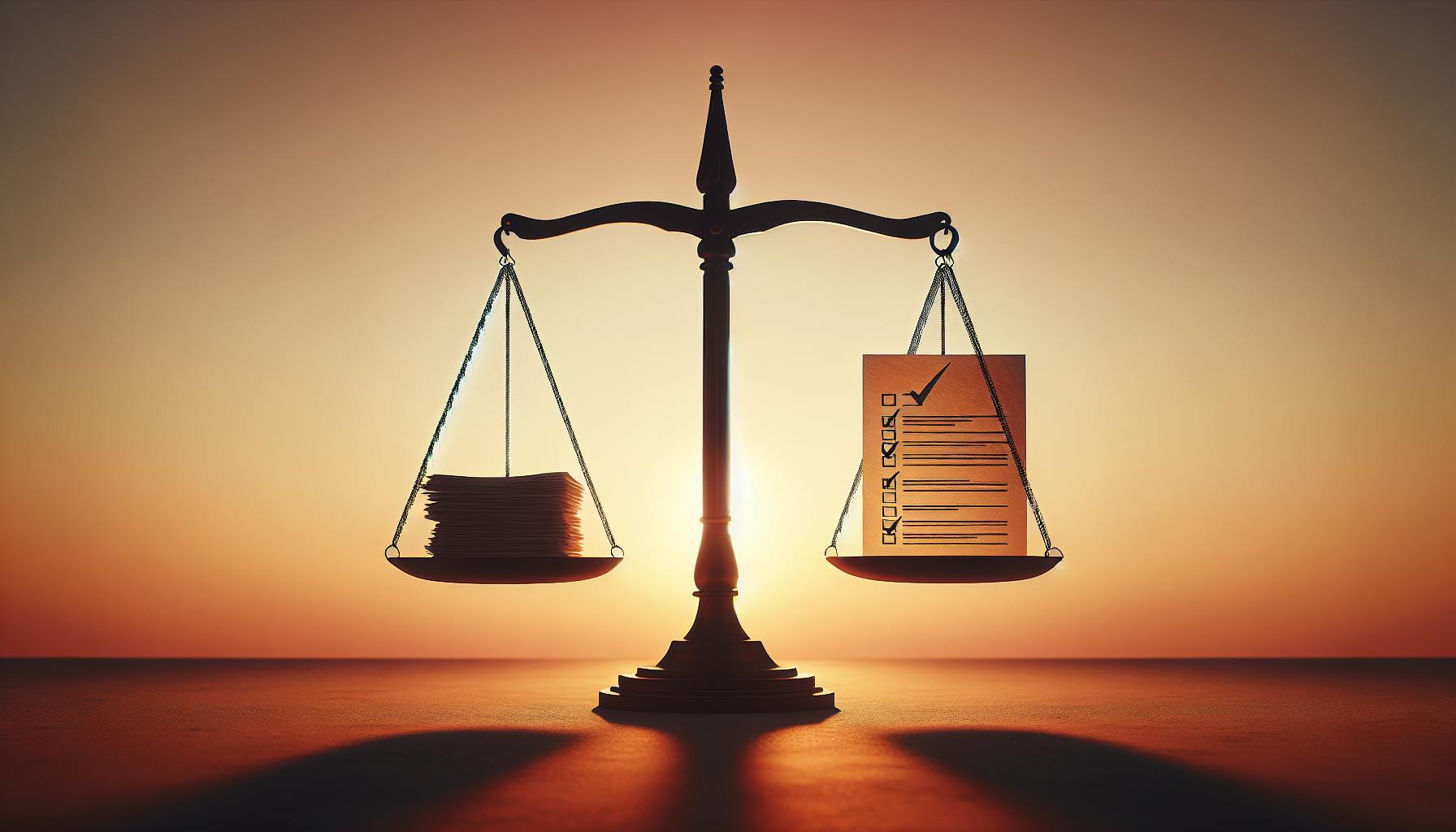Seeking justice for civil rights era hate crimes is an admirable and necessary pursuit.
This article takes an in-depth look at the brutal crimes against civil rights activists by the Ku Klux Klan during the civil rights era, the complex journey towards delayed justice through convictions decades later, and the ongoing impact of these cases.
You will gain key insights into the Klan's reign of terror, the catalysts that finally brought named perpetrators to trial, and how high-profile convictions of KKK members continue influencing modern civil rights reform efforts.
Unveiling the Fight for Justice Against the Ku Klux Klan's Civil Rights Era Crimes
The Rise of the Ku Klux Klan During the Civil Rights Era
The Ku Klux Klan (KKK) first emerged after the Civil War as a white supremacist group that used violence and intimidation against newly-freed Black Americans. After declining in the late 1800s, the KKK saw a resurgence in the 1950s and 1960s in backlash to the growing civil rights movement. They fiercely opposed racial integration and voting rights for African Americans. KKK groups across the South unleashed campaigns of bombings, murders, beatings, and threats.
A Legacy of Hate Crimes: KKK's Terror Campaign Against Civil Rights Activists
The KKK relied on hate crimes and domestic terrorism to intimidate civil rights activists. Some examples include:
- The 1963 Birmingham church bombing that killed 4 young Black girls
- The 1964 murders of civil rights workers James Chaney, Andrew Goodman and Michael Schwerner
- The 1965 shooting of Viola Liuzzo, a white civil rights activist
- The 1966 firebombing of Vernon Dahmer's home that killed him
KKK crimes often went unsolved and unprosecuted due to the sympathies of local law enforcement and all-white juries at the time. This enabled further KKK violence.
The FBI's Role and the Failure to Prosecute Civil Rights Cases
The FBI initially failed to thoroughly investigate many civil rights era hate crimes. Local police also did not properly collect evidence needed to prosecute KKK members. All-white juries in the South were reluctant to convict KKK defendants. Most crimes went unsolved for decades.
But in the 2000s, the FBI and Department of Justice reopened cold cases under the Emmett Till Unsolved Civil Rights Crime Act. Some perpetrators were finally convicted, bringing a measure of justice. But many escaped punishment.
Cataloging the Most Notorious Civil Rights Era Hate Crimes by the Ku Klux Klan
The Ku Klux Klan committed horrific hate crimes during the civil rights era, many of which went unpunished for decades. Efforts to bring belated justice and properly acknowledge these terrorist incidents continue today.
16th Street Baptist Church Bombing: A Dark Day for Civil Rights
On September 15, 1963, a bomb planted by KKK members exploded at the 16th Street Baptist Church in Birmingham, Alabama, killing four young African American girls and injuring many others. This shocking act of racist terrorism outraged the nation, but attempts to prosecute the perpetrators initially failed due to lack of evidence and all-white juries unwilling to convict fellow Klansmen.
After years of activism by victims' families, state and federal investigators reopened the cold case in the 1990s and early 2000s using new forensic techniques. Prosecutors finally convicted two surviving participants in the bombing plot in the 2000s - Thomas Blanton in 2001 and Bobby Frank Cherry in 2002. The delayed convictions showed that even decades-old hate crimes can eventually face justice through determined efforts.
The Freedom Riders' Ordeal: CORE's Battle Against KKK Violence
The Congress of Racial Equality (CORE) sponsored integrated bus trips through the South in 1961 to challenge segregation, known as the "Freedom Rides." On May 14, one bus was firebombed outside Anniston, Alabama, forcing the riders to flee for their lives. On May 20, Freedom Riders arriving in Birmingham were brutally beaten by a white mob organized by the KKK with police complicity.
The Freedom Riders persevered despite the KKK's violent tactics. Their courageous stance and the ensuing national attention helped motivate the Kennedy administration to enforce desegregation of interstate transit facilities. No KKK members faced prosecution for attacking the Freedom Riders at the time due to the racism of local authorities.
Targeted Murders of Civil Rights Activists by the Klan
The KKK targeted civil rights leaders and activists for assassination, aiming to intimidate the movement through murder. For instance, Klansmen shot Detroit homemaker Viola Liuzzo while she participated in the 1965 Selma march. In 1964, KKK members abducted and killed African American activists James Chaney, Andrew Goodman and Michael Schwerner in Mississippi. Local juries refused to convict despite FBI evidence.
The KKK's culture of racist violence led to many slayings of activists seeking basic civil rights. Most perpetrators initially escaped punishment due to the racial biases of Southern courts and law enforcement. Over time, through determined investigation and changing social attitudes, some measure of delayed justice emerged in certain cases. But the trauma inflicted through these hate crimes persists.
sbb-itb-585a0bc
sbb-itb-585a0bc
sbb-itb-585a0bc
The Pursuit of Delayed Justice: Revisiting Civil Rights Era KKK Crimes
This section focuses on the legal efforts in recent decades to pursue accountability for racist violence committed during the civil rights era. While recognizing the immense challenges in prosecuting these cold cases, the content aims to thoughtfully examine the complex issues without endorsing or opposing specific legal strategies.
Utilizing Civil Rights Laws: Lawsuits Under Section 1983 and Section 1985
There have been attempts to use civil rights era laws to enable victims and families to file lawsuits against the Ku Klux Klan members involved in racist attacks during the 1950s and 60s. However, successfully prosecuting these decades-old cases raises difficult legal and ethical questions with reasonable arguments on multiple sides.
Reopening the Cold Cases: The FBI's Cold Case Initiative
In the 1990s-2000s, the FBI and Department of Justice made efforts to reopen investigations into unsolved civil rights era homicides. The complex process of reexamining evidence from long ago highlights limitations around due process and the rights of the accused.
The Impact of New Hate Crime Law Enacted in 2009 on Prosecutions
Laws enacted after 9/11 extended statutes of limitations on certain crimes, allowing some civil rights era cases to move forward in the 2000s. There are good faith disagreements regarding the merits and concerns around prosecuting these historic cases so long after the fact.
The Lasting Influence of KKK Trials on Modern Civil Rights Movements
The Symbolic Triumph: Retrospective Justice for Victims and Families
The convictions of KKK members decades after their racist crimes carried profound meaning for the victims, their families, and civil rights advocates. Though belated, the trials and guilty verdicts represented a symbolic triumph and a chance for retrospective justice. Families of those killed could finally see some accountability after years of denied justice. The convictions showed that racial violence would not go unpunished, no matter how much time had passed.
Strengthening the 14th Amendment: The Role of High-Profile KKK Trials
High-profile convictions of KKK members for past hate crimes strengthened 14th Amendment rights going forward. Though the state failed for decades to properly investigate and prosecute racial violence, contemporary trials showed a reversal of past failings. The trials signaled that constitutional rights would now be protected more vigorously for all citizens regardless of race. This represented an attempt by the state to remedy past negligence and dereliction of duty. The high publicity of the trials kept issues of racial justice and civil rights at the forefront of public discourse.
Igniting Change: How KKK Convictions Fuel Racial Reform Campaigns
By raising public awareness and showing state commitment to prosecuting racial violence, the convictions provided momentum for further policy changes promoting racial equity. The trials ignited public support for reforms addressing systemic racism in the criminal justice system and beyond. They showed the need to strengthen hate crimes legislation while fueling campaigns against mass incarceration and racial profiling. Though the convictions came late, they maintained focus on the continuing need to fight racism on institutional and societal levels. This kept pressure on lawmakers to enact meaningful reforms.
Conclusion: Reflecting on the Legacy of KKK Trials in the Civil Rights Era
The civil rights era KKK trials were important for seeking justice and advancing equal protection under the law. While the journey was difficult, key court victories helped address violent hate crimes.
Summarizing the Journey Toward Justice
- Racial violence and lack of earlier prosecutions showed need for legal action
- Recent convictions in cold cases brought some closure
The Ongoing Echoes of Civil Rights Cases
- Social justice and anti-racism movements continue to address inequalities
- More work remains to build a just society for all


